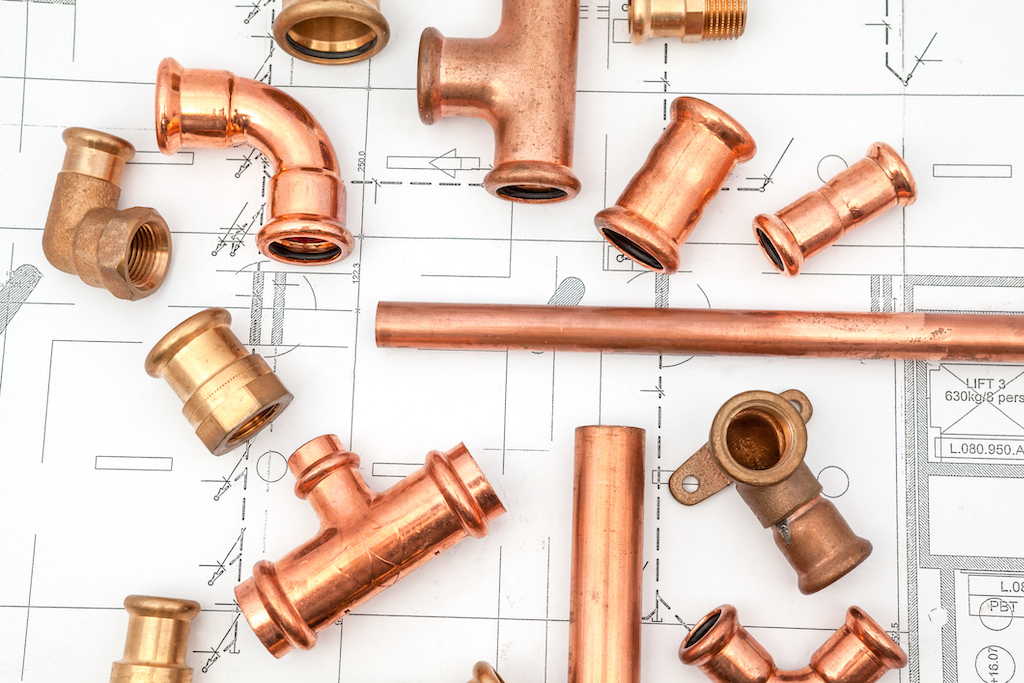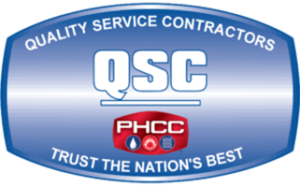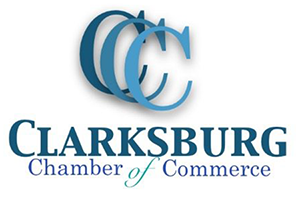The Role of Proper Insulation in Plumbing
Do you want to protect your plumbing system and cut down on those energy bills? Plumbing insulation is your go-to solution! By insulating your pipes, you can prevent them from freezing, reduce heat loss, and even extend the lifespan of your plumbing system.
Let’s jump into this guide where we’ll check out different types of insulation materials, discover the benefits they offer, and figure out how to choose and maintain the best insulation for your home.

What is Plumbing Insulation?
Plumbing insulation involves wrapping your pipes with various insulating materials to keep a consistent temperature and fend off issues caused by temperature changes. During those chilly winter months, pipes that aren’t insulated are at risk of freezing.
This can lead to them bursting, which spells expensive repairs and lots of water damage. By insulating your pipes, you help keep a steady temperature, ensuring they don’t freeze even when the thermometer dips.
In the summer, your pipes might sweat due to condensation, especially when cold water runs through them in a warm environment. This moisture can lead to mold growth and water damage. Insulating your pipes can stop this condensation and keep your home safer from these potential water-related problems.
When it comes to hot water pipes, insulating them minimizes heat loss, allowing your water to stay hotter for longer. This means your water heater doesn’t have to work as hard, leading to energy savings and lower utility bills. Similarly, by insulating cold water pipes, you help them maintain their cool temperature, which reduces the strain on your cooling system.
Types of Insulation Materials for Plumbing
When insulating your pipes, you have several material options, each with its unique set of benefits, suited for different situations. Let’s explore the most popular choices:
Foam Insulation
This is one of the most common insulation materials and for good reason. It’s easy to install, affordable, and provides excellent thermal protection. Foam insulation comes in pre-formed tubes that simply snap over your pipes, making it an ideal choice for DIY enthusiasts. It works well for both hot and cold water pipes.
Fiberglass Wrap
Known for its durability and effectiveness in extreme temperatures, fiberglass wrap is a reliable option. It’s particularly useful for hot water pipes because it handles high temperatures well without degrading. Just keep in mind that it needs to be secured with special tape.
Rubber Pipe Insulation
Flexible and resistant to moisture, rubber insulation offers excellent protection against both freezing and condensation. Its flexibility makes it easy to fit around various pipe shapes, making it ideal for areas prone to high humidity. It’s another great choice for those looking for a straightforward DIY project.
Each insulation material has its advantages, so think about your specific needs and the conditions in your home when choosing the right one. This will ensure you get the most out of your plumbing insulation and keep your system running efficiently for years to come.
How Insulation Protects Your Plumbing System
Thermal Protection
Insulation acts as a barrier against extreme temperatures, keeping your pipes from freezing in the winter and preventing overheating in the summer.
By maintaining a stable temperature, insulation ensures that your plumbing system operates efficiently year-round.
This protection is particularly important in areas with harsh winters like Clarksburg, MD. By preventing temperature extremes, insulation helps avoid costly damages and repairs.
Moisture and Condensation Control
Insulated pipes are less likely to experience condensation, which can lead to moisture-related issues like mold and mildew.
This is especially important in humid climates where condensation can be a constant problem.
By controlling moisture, insulation helps maintain a healthy indoor environment and prolongs the life of your plumbing system. This can be particularly beneficial in basements and crawl spaces where dampness is a concern.
Benefits of Proper Plumbing Insulation
Investing in proper plumbing insulation provides several key benefits that are essential for maintaining your home’s plumbing system effectively.
Preventing Pipe Freezing
A major advantage of insulation is its ability to prevent your pipes from freezing in cold weather. Frozen water expands, which can lead to burst pipes, resulting in expensive repairs and significant water damage.
Insulating your pipes helps maintain a consistent temperature within them, greatly reducing the risk of freezing and the costly issues that follow. By keeping your pipes insulated, you ensure that water flows smoothly even in dropping temperatures, saving you from potential hassles and financial burdens.
Reducing Heat Loss and Energy Costs
Insulated pipes effectively maintain the water’s temperature as it moves through your home, meaning your hot water stays hotter for longer and your cold water remains cool. This efficiency prevents your heating system from overworking, which can significantly cut down your energy costs.
Insulation proves especially beneficial in colder regions, such as Clarksburg, MD, Potomac, MD, and North Bethesda, MD, where it can lead to noticeable savings on energy bills.
Minimizing Noise from Pipes
Another benefit of proper insulation is the reduction of noise from flowing water in your pipes. This is particularly advantageous in multi-story homes or houses with extensive plumbing systems. Insulated pipes dampen the sounds of water movement, contributing to a quieter and more peaceful home environment.
Increasing System Longevity
Insulation also protects your pipes from extreme temperature fluctuations, reducing wear and tear. This consistent temperature management lessens the stress on your plumbing, leading to fewer repairs and extending the overall lifespan of the system.
Investing in insulation is a smart choice that keeps your plumbing in prime condition for years, making it a worthwhile addition to any home maintenance plan.
How to Choose the Right Insulation for Your Plumbing
Climate Considerations
In colder areas like Clarksburg, MD, you’ll need insulation that offers excellent thermal protection to prevent pipes from freezing. Insulation with high R-values, which indicate better thermal resistance, is crucial in these regions.
Materials like fiberglass and foam are highly effective in maintaining consistent pipe temperatures, ensuring your system remains functional throughout the winter months.
Pipe Material
The material of your pipes also plays a significant role in choosing the right insulation. Copper pipes, known for their durability and heat conductivity, pair well with fiberglass wrap.
This type of insulation provides a snug fit and superior thermal protection. On the other hand, foam insulation is more suited for PVC pipes due to its flexibility and ease of application.
Foam can easily conform to the shape of PVC pipes, providing an effective barrier against temperature fluctuations.
Durability and Maintenance
Another factor to consider is the durability and maintenance requirements of the insulation material. Fiberglass is durable and can withstand high temperatures, but it requires careful installation to avoid gaps and ensure maximum efficiency.
Foam insulation is easier to install and maintain, making it a convenient option for many homeowners. Assessing the durability and maintenance needs of each material can help you choose an option that fits your lifestyle and maintenance capabilities.
Cost and Installation
Cost is always a consideration when choosing insulation. While fiberglass may be more expensive initially, its long-term benefits in energy savings and durability can outweigh the upfront cost.
Foam insulation, while generally more affordable, may require more frequent replacement in harsh conditions.
Additionally, consider whether you will install the insulation yourself or hire a professional, as this can impact the overall cost and effectiveness.
Installation Process of Plumbing Insulation
Pros and Cons of DIY
Installing insulation yourself can be tempting. Here are some pros and cons to consider:
Pros:
- Cost Savings: You can save money on labor costs.
- Flexibility: Work on your own schedule.
- Learning Experience: Gain new skills and knowledge.
Cons:
- Time-Consuming: It might take longer than expected.
- Mistakes: Inexperience can lead to costly errors.
- Safety Risks: Handling insulation materials incorrectly can be hazardous.
Why Professional Installation Matters
Hiring a professional can make a significant difference in the quality of your plumbing insulation. Here’s why:
- Expertise: Professionals have the knowledge and experience to do the job correctly the first time.
- Efficiency: They can complete the job quickly and efficiently.
- Quality Materials: Professionals often have access to better quality insulation materials.
By understanding the installation process of plumbing insulation, you can make an informed decision on whether to tackle the job yourself or hire a professional.
Maintenance Tips for Insulated Pipes
Keeping your insulated pipes in good condition is crucial for their longevity and efficiency. Here are some handy maintenance tips to ensure your plumbing insulation remains effective, whether you’re in Clarksburg, MD, or Potomac, MD.
Regular Inspections
Regular inspections are key to maintaining your insulated pipes. Here’s what to look for:
- Visible Damage: Check for cracks, tears, or other signs of wear and tear.
- Moisture: Ensure there’s no moisture or condensation, which can indicate leaks or poor insulation.
- Proper Fitting: Make sure the insulation is still snug around the pipes.
A thorough inspection every few months can prevent small issues from becoming major problems.
Repairing Damaged Insulation
If you notice any damage during your inspections, it’s important to repair it promptly. Here’s how:
- Remove the Damaged Section: Carefully cut away the damaged insulation.
- Clean the Pipe: Ensure the pipe is clean and dry before applying new insulation.
- Apply New Insulation: Use appropriate materials to re-insulate the pipe.
Quick repairs can save you from bigger headaches down the road.
Upgrading Old Insulation
Sometimes, the best way to maintain your insulated pipes is to upgrade old insulation. Here’s when to consider an upgrade:
- Age: If your insulation is more than a decade old, it might be time for an upgrade.
- Efficiency: Newer insulation materials are often more efficient and eco-friendly.
- Damage: Extensive damage or wear can warrant a full replacement.
Upgrading can improve your home’s energy efficiency and reduce heating costs.
Environmental Impact of Plumbing Insulation
Reducing Energy Consumption
Insulating your pipes is a simple yet effective way to reduce energy consumption in your home. By preventing heat loss, your water heater doesn’t have to work as hard to maintain the desired temperature.
This not only saves energy but also reduces your utility bills. Proper insulation ensures that hot water stays hot and cold water stays cold, improving overall efficiency.
The energy saved by reducing the workload on your heating and cooling systems translates directly into cost savings and a smaller environmental footprint.
Lowering Carbon Footprint
Every small step towards energy efficiency helps in lowering your carbon footprint. By reducing the amount of energy needed to heat your water, you decrease the emissions associated with energy production.
This makes insulation an eco-friendly choice for homeowners looking to contribute to a healthier planet. Insulating your pipes can significantly cut down on the greenhouse gases released by power plants, especially if your energy comes from fossil fuels.
Whether you live in North Bethesda, MD, or any other area, this simple step can make a big difference in combating climate change.
Eco-Friendly Insulation Options
There are several eco-friendly insulation options available that can further enhance the environmental benefits of your plumbing system. Materials like recycled denim, sheep’s wool, or cork are not only effective but also sustainable.
These options help reduce waste and use fewer resources during production. Recycled denim repurposes old jeans, reducing landfill waste, while sheep’s wool is a renewable resource that biodegrades naturally.
Cork insulation is harvested from the bark of cork oak trees, which regenerate over time. Choosing eco-friendly insulation materials supports a more sustainable lifestyle and reduces the environmental impact of your home improvement projects.
Secure Your Home with Clarksburg Plumbing
Are you tired of dealing with burst pipes or inefficient water heating? Clarksburg Plumbing is here to help! Serving Clarksburg, MD, Potomac, MD, and North Bethesda, MD, our expert team provides top-notch insulation services to protect your home and save you money.
Don’t let extreme temperatures damage your pipes or drive up your utility bills. Contact Clarksburg Plumbing today at 301-962-2140 and ensure your home’s plumbing system is safe, efficient, and built to last. Your home deserves the best care—let us provide it!

FAQs
How much can I save with proper insulation?
Properly insulated pipes can save you a significant amount on your energy bills. By reducing heat loss, your water heater operates more efficiently, which can lead to savings of up to 10-20% on your annual heating costs. Over time, the investment in insulation pays for itself through lower utility bills.
Is it necessary to insulate both hot and cold water pipes?
Yes, it’s beneficial to insulate both hot and cold water pipes. Insulating hot water pipes reduces heat loss, ensuring hot water arrives at your faucets faster and stays hot longer. Insulating cold water pipes helps prevent condensation, which can lead to moisture problems and pipe corrosion.
How often should I check my insulated pipes?
Regular inspections are important to maintain the effectiveness of your insulated pipes. It’s a good idea to check them every few months for any signs of damage, wear, or moisture. Addressing issues early can prevent bigger problems and ensure your insulation continues to perform well.
What are the signs that my insulation needs to be repaired or replaced?
Signs that your insulation needs attention include visible damage such as cracks or tears, signs of moisture or condensation, and areas where the insulation has become loose or is missing entirely. If your energy bills have increased without a clear reason, it could indicate that your insulation is not performing well.
Are there eco-friendly insulation options available?
Yes, there are several eco-friendly insulation options available. Materials such as recycled denim, sheep’s wool, and cork are effective and sustainable choices. These materials not only provide excellent insulation but also reduce environmental impact by using renewable resources and minimizing waste.
What type of insulation is best for climates like Clarksburg, MD?
For climates like Clarksburg, MD, which experience a range of temperatures, it’s important to choose insulation that can handle both hot summers and cold winters. Fiberglass, foam, and cellulose are all good options. These materials provide excellent thermal barriers to keep your home comfortable year-round.
Can insulation help with noise reduction?
Yes, insulation can also help with noise reduction. Certain types of insulation, like fiberglass and foam, can reduce the amount of noise that travels through your walls and pipes, providing a quieter indoor environment.
How does insulation affect the lifespan of my pipes?
Insulating your pipes can extend their lifespan by protecting them from extreme temperature fluctuations and moisture. This protection helps prevent issues such as freezing, corrosion, and condensation, all of which can lead to pipe damage over time.
Can I install pipe insulation myself, or should I hire a professional?
While some pipe insulation projects can be done as a DIY task, it’s often best to hire a professional to ensure the job is done correctly. Professionals have the experience and tools to install insulation efficiently and effectively, ensuring maximum energy savings and protection for your pipes.









